I have been more and more nervous about gross misinterpretations and misuses of the phrase, “The Science of Reading.” Among the many fears I hold, one is that educators are interpreting the Science of Reading to mean: teach phonics (only or first).
Timothy Shanahan, brilliantly explained how this fear is playing out in terms of research in a September 10 blogpost. And his analogy to a tipping boat couldn’t be more spot-on.
A Tipping Boat
It is as if our nation’s response to dismal reading proficiency is being addressed by completely leaning toward the decoding needs of students while ignoring the language comprehension needs of students. If we continue in these murky waters, we will be no closer to addressing the lack of reading proficiency in our students. We will be “tipping the boat” too far in the direction of phonics, without a language comprehension balance. Those residing in the Balanced Literacy camp, arguably opposed to systematic explicit phonics instruction, will happily chant, “See, I told you so.”
Without a doubt, it is easier to address decoding instruction than to address language comprehension instruction. Not to mention that the positive results from implementing systematic and explicit phonics instructions are quicker to see.
Language Comprehension
What’s so tough about addressing language comprehension? According to Hollis Scarborough’s Reading Rope, Language Comprehension involves five skills, all of which are complex and weave together to contribute to skilled reading: Background Knowledge, Vocabulary, Language Structures, Verbal Reasoning, and Literacy Knowledge. Each of these five is a monster in itself to tackle instructionally, and each is critical to skilled reading. When we ignore the Language Comprehension side of Scarborough’s Rope in an effort to beef up phonics instruction, we are, as Shanahan points out, essentially leaving the science out of the science of reading.
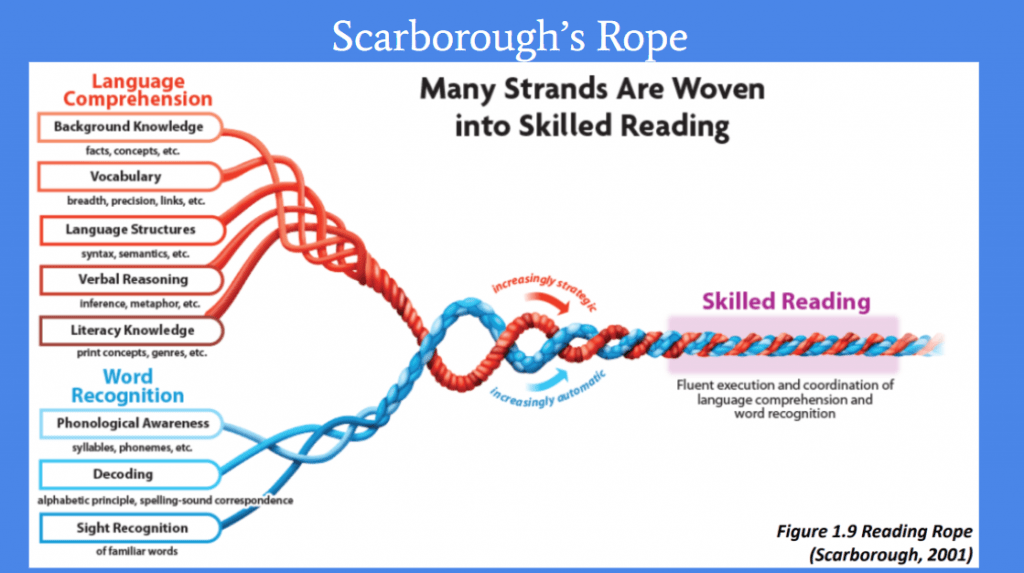
If it’s so tough to address language comprehension (as I contend), what are educators to do? Educators must advocate for high quality curriculums that thoroughly address both sides of Gough & Tunmer’s Simple View of Reading equation.
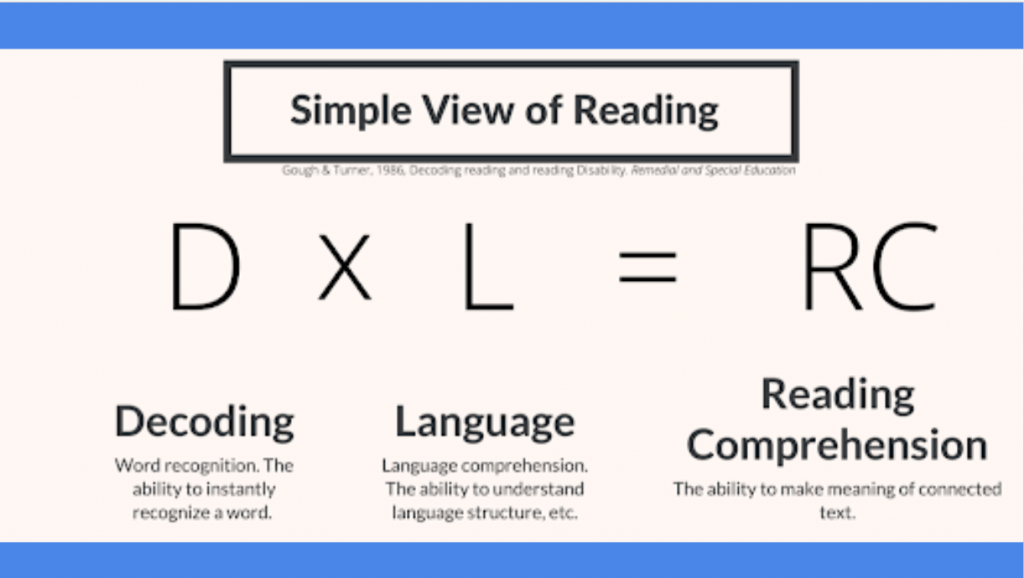
Educators must embrace the power of high-leverage instructional practices, such as co-creating anchor charts so that classrooms are collectively building background knowledge around a topic, working with vocabulary with a focus on morphology, and analyzing language structures. The anchor charts in Ms. Hellige’s 5th grade classroom, based on EL Education’s Grade 5 Module 1, “Stories of Human Rights”, beautifully illustrate how to address the Language Comprehension side of the equation:
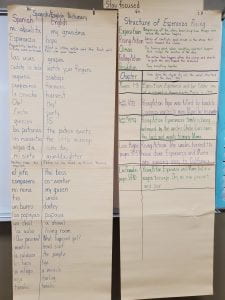
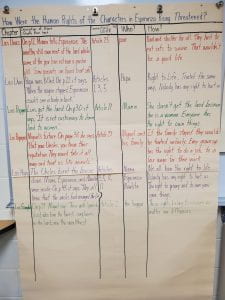
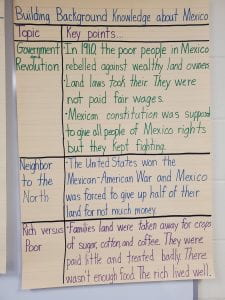
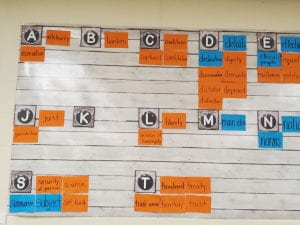
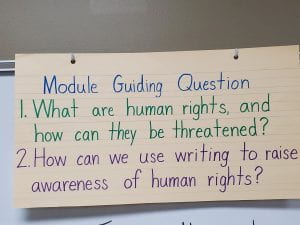
High Quality Curriculums with Support
Those high quality curriculums must be selected carefully and with knowledgeable staff on-board the “selection ship.” EdReports is a trusted source that helps educators understand “Why Materials Matter,” and assists them by outlining 6 Key Adoption Steps. They assess ELA curricular resources based on the following criteria: Alignment, Usability, Text Quality & Complexity, and Building Knowledge.
Adopting a high quality curriculum in not enough, however. Staff must have a firm grip on what it takes to acquire skilled reading, and they must have support in implementing the curriculum. This support starts at the top: administrators who also have an understanding of the science of reading and an understanding of the tremendous work it takes to successfully implement. Support for teachers also comes in the form of instructional coaching: a coaching staff who has the same understanding as administrators and teachers, and who has the prowess to support teachers in implementation.
The reality of this difficulty can cause sleepless nights and send me into the depths of despair, as it did earlier this week. But then, I have conversations with teachers who are in the trenches implementing our high quality curriculum, EL Education, and my faith is restored! We have teacher teams who are consistently reaching out for coaching support. We have individual teachers who are consistently reaching out for support.
I was able to meet with two new-to-second-grade teachers this week who are working their tails off to meet their students’ needs. They understand the difficulty of implementing the EL Education curriculum. They understand that they have a lot to learn. They have a passion to do what is right by their students.
These are the folks who know that we can’t do this work alone, who know that providing high quality instruction with high quality materials is hard, who know that approaching problems with a growth mindset gets us much farther than without that mindset, and who know that working from 8 – 3:30 doesn’t get the job done.
The tipping literacy boat is real. It is occurring because of a severe lack in understanding about how to build skilled readers. “But under pressure and anxiety, they are shifting all the ballast to one side of the boat. Ignoring or delaying language comprehension instruction is not the smart way to correct the decoding problem. In fact, it might eventually sink the boat,” Shanahan, Sep. 10, 2022. With educators like the ones mentioned in this post, we will ensure smooth sailing for that literacy boat!